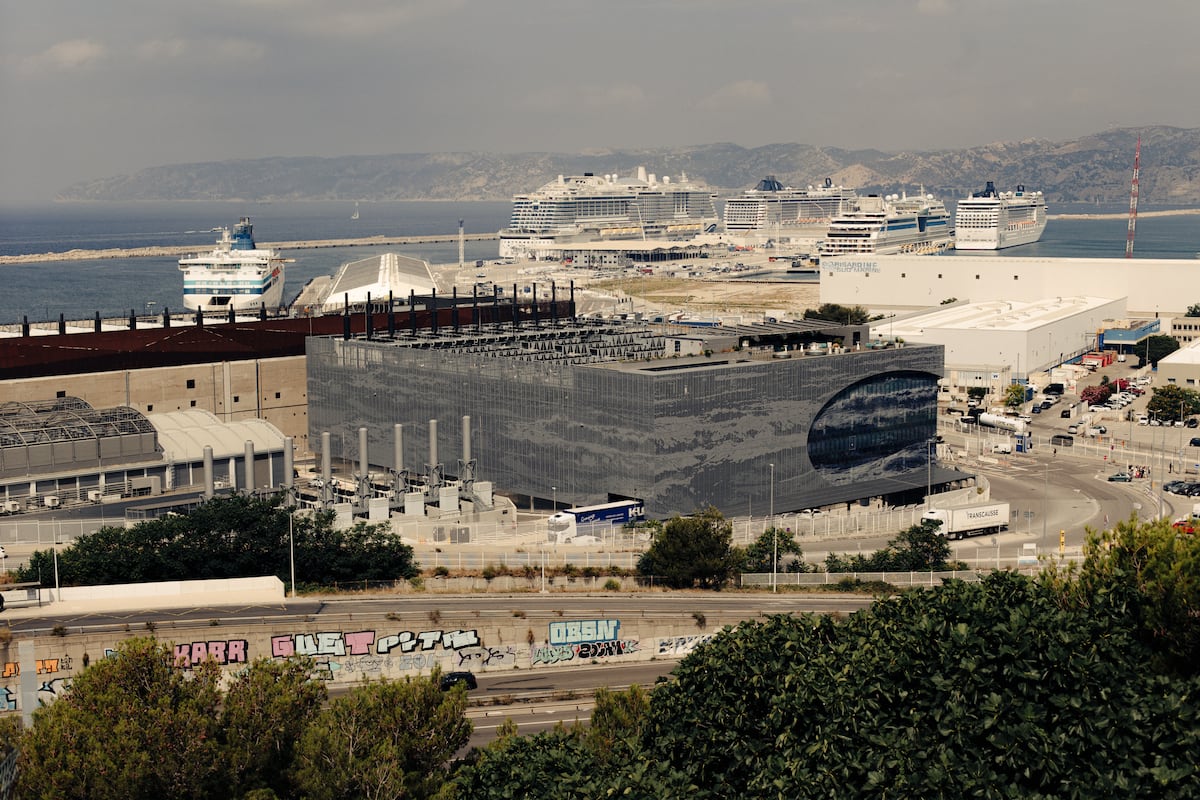Has anyone actually read this article??
-
It’s about electricity. Data centers are drying up the electricity that can be provided to a city and are causing projects like the electrification of the harbor to be delayed. There is no water shortage on a coast
-
Data centers are built there due to submarine cables and the proximity to Frankfurt. There are like 20 cables landing at Marseille. That’s the best spot to put data centers if a lot of international traffic is expected.
-
Can someone explain why the data center use the water then expulse it as vapor instead of like recycling/ expulsing it as water? I get it that data center (hot) + water (cold) = vapor/steam but there could be a post processing to turn the steam to normal water but maybe that need regulation for that and it is a cost. Is that the only reason? Cost?
Where would they dump the heat that the condensing water releases? If they had a good end point for the heat, they wouldn’t have to use the atmosphere for it in the first place.
River? Sea? They could release hot water with udon? 😝

Central heating for industries and homes requiring heat or warm water.
My father in law lives in Provence, he doesn’t need heat more than three months a year. I wonder jf you could use it to drive electricity turbines instead? You won’t get all the energy you put into the chips back, but would it be enough for it to be worthwhile?
He doesn’t use warm water for showers or only showers 3 times per year? That’s hardcore.
Lol, fair point!
Air. It’s what a radiator does.
Water has a heat capacity that is 4 times more than air by weight. Water is far more dense at nearly a cubic meter per kg. Roughly 3500-4000 times more air by mass is required to perform the same cooling as evaporated water
I think warm showers are quite common throughout the year, even in france.
Every few days an article erupts about how data centers in Europe are drying up the continent. I don’t question this, but as the US and China are said to lead the way in AI and data center infrastructure, how is the situation there? Is there a global comparison?
I only know of a study regarding China (which is known to have severe water problem) from 2024. It says, among others:
Already, before the explosion of AI & chatbots, national exposure across various types of water risks are high:
- 46% of China’s national data centre racks are located in the Dry 10, which are as dry as the Middle East.
- At least 41% of China’s national data centre racks are located in regions that are highly prone to drought while at least 28% are in areas that are highly prone to floods; at least a fifth are very prone to both.
- 56% of China’s data centre racks are located in coastal regions vulnerable to storm surge & sea level rise.
- Water risks can also disrupt power generation and data centres will face double whammy risks especially in hydropower reliant provinces
Here is the source (open pdf)
But this is only China. Maybe someone knows where to get comparable data from around the globe.
Anecdotally, the story that springs to mind for me is the lack of drinkable water near one of metas datacentres..
As for compatible data for statistical analysis. Statista is my usual go-to for American metrics. Closest I could find to this subject seems to be to do with the power side of sustainability, rather than climate focused… But maybe you’ll have better luck than I poking around.
Environmental concerns are considered communism in the USA. In China, criticism is suppressed. Hence only Europeans voice the problem.
There are lots of stories of data centers in the US doing exactly the same. They have been posted here on lemmy as well. And more are planned which will do more of the same there.
Yes, I know. But what I mean is a global study comparing the situation across all different continents.
The american solution is to turn a blind eye.
My tiny europoor brain simply cannot comprehend that level of freedom.
- Sent from 2 of my 6 weeks of paid holidays a year that our freedom-hating socialist hellhole forces us to take whether we like it or not.
Why have they built them in the warm south and not the colder north?
Cheaper energy maybe?
But yes this would make way more sense in combo with long distance heat





